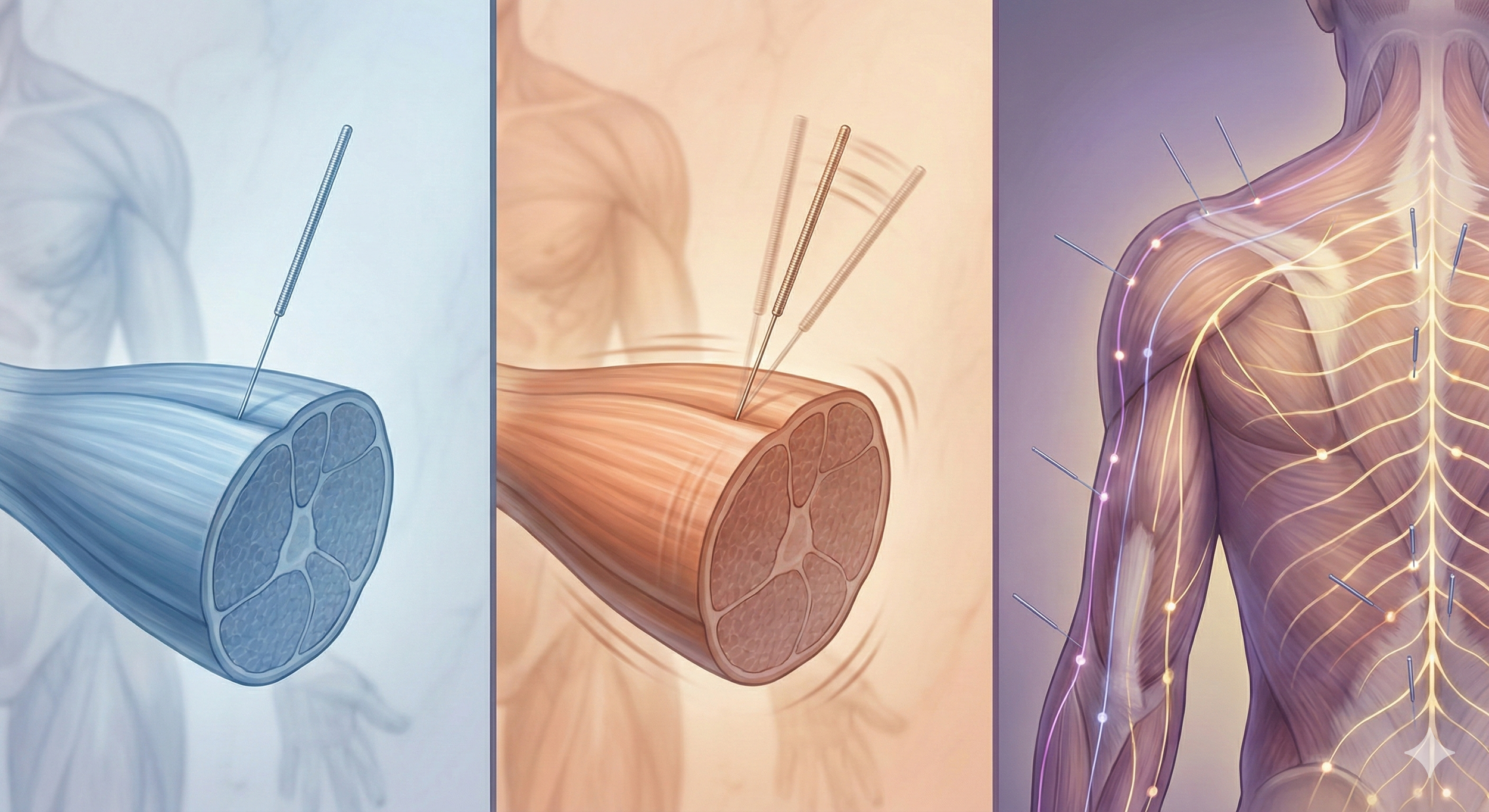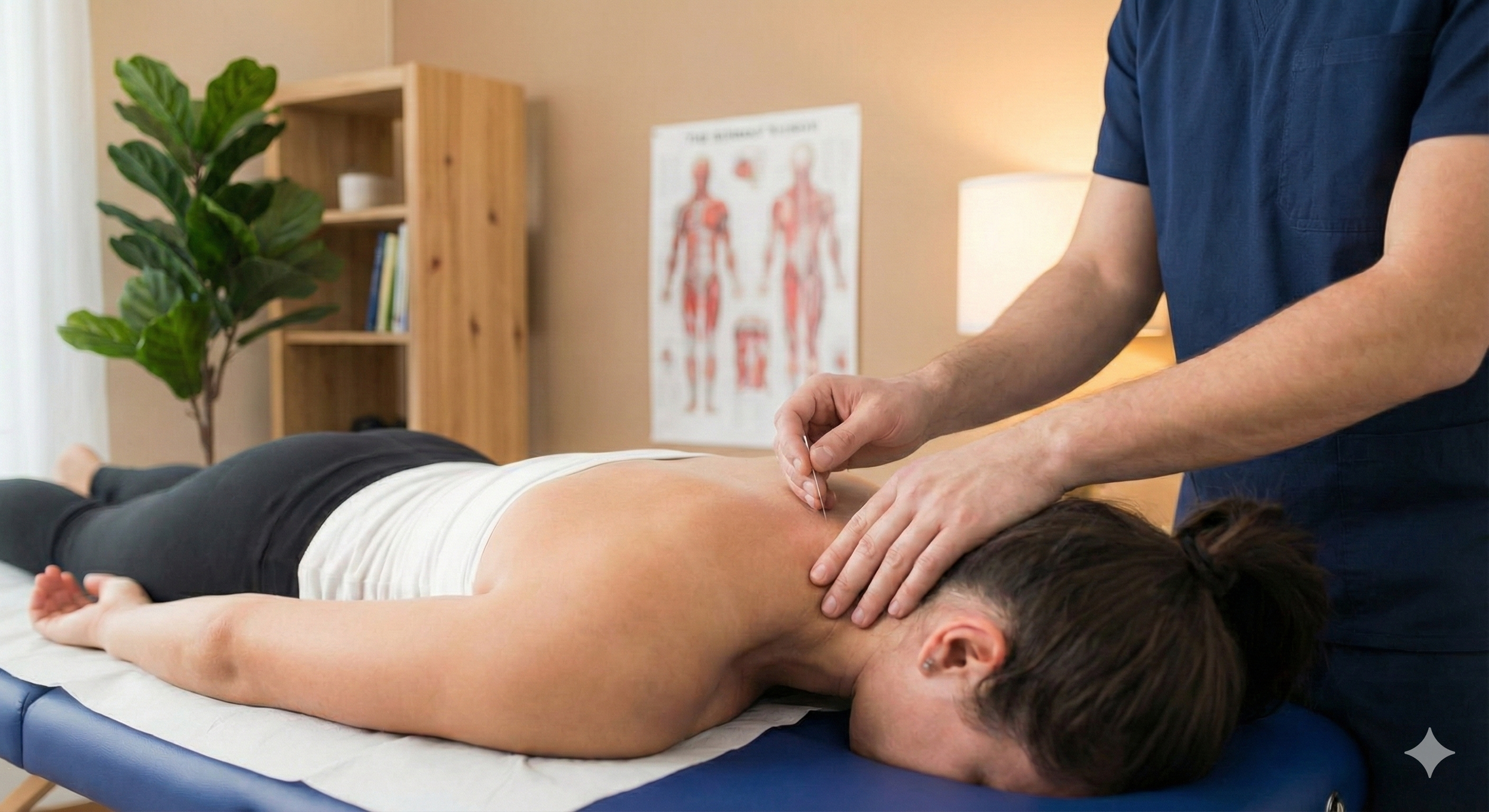Acupuncture for Rheumatoid Arthritis
Rheumatoid arthritis
Rheumatoid arthritis (RA) is a chronic autoimmune disorder causing inflammation and pain in the joints. It affects millions globally, impacting physical activities and quality of life.
Key Points
Acupuncture as Complementary Therapy: Acupuncture, a traditional Chinese medicine practice, is increasingly recognized as an effective complementary therapy along with conventional care for managing RA symptoms and improving patients' overall well-being.
Scientific Basis for Acupuncture: Contrary to traditional beliefs in qi, modern research supports acupuncture’s benefits through its influence on the nervous system, inflammation reduction, and immune system modulation.
Clinical Evidence Supporting Acupuncture: Studies show acupuncture can alleviate RA symptoms such as joint pain, stiffness, and fatigue, enhancing the effectiveness of conventional treatments.
Impact on Inflammation and Immune Response: Acupuncture's ability to modulate the immune system and reduce inflammation is particularly beneficial for RA patients, potentially slowing disease progression.
Improving Cardiovascular Health: Recent research highlights acupuncture’s role in lowering the risk of cardiovascular diseases in RA patients by reducing pro-inflammatory cytokines and improving vascular function.
Holistic Benefits of Acupuncture: Beyond symptom management, acupuncture enhances mental and emotional well-being, offering a comprehensive approach to improving the quality of life for RA patients.
What is Rheumatoid Arthritis?
Rheumatoid arthritis (RA) is a chronic inflammatory disorder that goes beyond the joints. Unlike the wear-and-tear damage of osteoarthritis, RA affects the lining of your joints, causing a painful swelling that can eventually result in bone erosion and joint deformity. It's an autoimmune condition, where the immune system mistakenly attacks the body's tissues, affecting joint linings and, in severe cases, other organs like the skin, eyes, lungs, and blood vessels.
RA is marked by periods of disease flares and remissions. It can affect anyone at any age, but it commonly begins in middle age and is more frequent in women than men. Early diagnosis and aggressive treatment are crucial in managing RA symptoms, preventing joint and organ damage, and improving physical function and quality of life.
Rheumatoid Arthritis Symptoms
The symptoms of rheumatoid arthritis can vary in severity and may even come and go. Early signs often involve smaller joints first — particularly the joints that attach your fingers to your hands and your toes to your feet. As the disease progresses, symptoms often spread to the wrists, knees, ankles, elbows, hips, and shoulders. In most cases, symptoms occur in the same joints on both sides of your body.
Common signs and symptoms of RA include tender, warm, swollen joints; morning stiffness that may last for hours; fatigue, fever, and loss of appetite. Over time, RA can cause joints to deform and shift out of place. Because RA can affect multiple other organs of the body, it's not uncommon for affected individuals to experience dry eyes and mouth, lung inflammation, skin nodules, and even cardiovascular or respiratory issues.
What Are the 4 Stages of Rheumatoid Arthritis?
Rheumatoid arthritis (RA) is a progressive autoimmune disease characterized by inflammation in the joints, which can lead to a variety of physical disabilities. Understanding its progression is crucial for effective management and treatment. RA typically develops through four stages, each with distinct features and challenges:
Early Stage: Synovitis
In the initial phase, inflammation of the synovium (the lining of the joints) occurs without visible damage to the cartilage or bones.
Symptoms may include joint pain, swelling, warmth, and stiffness, especially in the morning or after periods of inactivity.
This stage is crucial for diagnosis and early treatment to prevent or slow down the progression of the disease.
Moderate Stage: Pannus Formation
As the disease progresses, the inflamed synovium thickens into a layer called pannus. This tissue invades and damages cartilage and bone, causing erosion.
Joint deformity may begin to develop as the cartilage wears away, leading to changes in joint shape and misalignment.
Pain and stiffness may increase, and mobility can become more limited.
Severe Stage: Fibrosis
The inflammation leads to the formation of fibrous tissue, or fibrosis, which can cause the joint space to narrow and bones to fuse together, resulting in significant loss of mobility.
At this stage, joint deformities and significant pain become more pronounced. Activities of daily living can be severely impacted.
Systemic symptoms such as fatigue, fever, and weight loss may be more evident due to the body's ongoing inflammatory response.
End Stage: Ankylosis
The final stage is characterized by the complete fusion of the joint bones, known as ankylosis, resulting in total loss of joint function and mobility.
Pain may actually decrease in this stage due to the cessation of joint movement, but the loss of function and independence can significantly affect the patient's quality of life.
Surgical interventions, such as joint replacement, may be considered to restore mobility and relieve pain.
Each stage of rheumatoid arthritis presents its own challenges and requires a tailored approach to treatment. Early diagnosis and intervention are key to managing the disease effectively and improving outcomes for those affected by RA.
Rheumatoid Arthritis Treatment Options
There's no cure for rheumatoid arthritis, but contemporary treatments can improve symptoms and slow the progression of the disease. The main goal of RA treatment is to control symptoms, prevent joint damage, and maintain the quality of life. Treatment involves a combination of medication, lifestyle changes, and sometimes surgery.
Medications used to treat RA include Nonsteroidal Anti-Inflammatory Drugs (NSAIDs), Steroids, Disease-Modifying Antirheumatic Drugs (DMARDs), and Biologic Agents that can slow disease progression. Physical and occupational therapy can help protect joints and maintain range of motion. When joint damage is severe, surgical options such as joint replacement may be considered.
Lifestyle and home remedies play a crucial role in managing RA. Regular physical activity, balanced with rest, helps maintain joint flexibility. A healthy diet, rich in antioxidants, can help reduce inflammation. Quitting smoking and managing stress can also significantly impact the severity of symptoms and improve the quality of life for people with RA.
Understanding rheumatoid arthritis is vital for managing this condition effectively. By recognizing the signs early and adopting a comprehensive treatment approach, individuals with RA can lead active and fulfilling lives.
Understanding Rheumatoid Arthritis and Acupuncture
Rheumatoid Arthritis (RA) is a chronic autoimmune condition characterized by inflammation and pain in the joints. While traditional medical treatments offer symptom relief and slow disease progression, many individuals seek complementary therapies to enhance their quality of life. Acupuncture, a key component of traditional Chinese medicine, has emerged as a promising adjunct therapy for RA patients. Read more to understand the role of acupuncture for rheumatoid arthritis symptoms, enhancing well-being, and potentially reducing cardiovascular disease risk associated with RA.
The Science of Acupuncture: Beyond Needles
Acupuncture involves the insertion of fine needles into specific points on the body to stimulate the nervous system, promoting physical and mental health benefits. Contrary to common misconceptions, the effectiveness of acupuncture transcends the concept of qi or energy flow. Scientific studies suggest that acupuncture can modulate the body's pain response, reduce inflammation, and improve immune system regulation. These mechanisms make it an attractive option for individuals seeking relief from the persistent symptoms of RA.
Clinical Evidence: Acupuncture and RA Symptom Management
Recent clinical trials and research studies underscore the potential of acupuncture in alleviating RA symptoms. Patients report significant reductions in joint pain, stiffness, and fatigue following regular acupuncture sessions. Moreover, acupuncture has been shown to enhance the efficacy of conventional RA treatments by minimizing side effects and improving overall symptom management. This synergy between acupuncture and traditional medical therapies offers a holistic approach to RA care.
Acupuncture's Impact on Inflammation and Immune Response
Acupuncture's ability to influence the immune system is particularly relevant for RA patients. By targeting specific acupuncture points, practitioners can modulate the body's inflammatory response, potentially reducing the chronic inflammation characteristic of RA. This modulation not only alleviates joint pain and swelling but also contributes to a more balanced immune system, reducing the risk of autoimmune flare-ups and disease progression.
Enhancing Well-being and Quality of Life
Beyond physical symptoms, RA significantly impacts mental and emotional health. Acupuncture has been associated with improvements in mood, sleep, and overall well-being. Patients often report a sense of relaxation and rejuvenation following acupuncture sessions, which can be attributed to the treatment's effect on the body's stress response. By addressing both the physical and psychological aspects of RA, acupuncture offers a comprehensive approach to improving patients' quality of life.
Acupuncture and Cardiovascular Health in RA Patients
A groundbreaking study highlights acupuncture's potential in reducing the risk of cardiovascular diseases, including ischemic stroke, among RA patients. Given the increased cardiovascular risk associated with RA, acupuncture's ability to lower pro-inflammatory cytokines and improve vascular function presents a novel preventative strategy. This research underscores acupuncture's role not only in managing RA symptoms but also in addressing the broader health challenges faced by individuals with this condition.
Personalized Treatment Plans: Tailoring Acupuncture to Individual Needs
Acupuncture treatments are highly personalized, taking into account each patient's unique symptoms, disease progression, and overall health. A qualified acupuncturist will develop a tailored treatment plan that may include a combination of acupuncture techniques, lifestyle recommendations, and dietary advice. This personalized approach ensures that each patient receives the most effective and holistic care possible.
Choosing the Right Practitioner: What to Look for in an Acupuncturist
Selecting a qualified and experienced acupuncturist is crucial for individuals considering acupuncture for RA management. Look for practitioners who are licensed, have specific experience in treating autoimmune conditions, and are knowledgeable about the latest research in the field. A good practitioner will work collaboratively with your healthcare team to integrate acupuncture into your comprehensive RA treatment plan.
Conclusion: Embracing Acupuncture as a Complementary Therapy for RA
Acupuncture offers a promising complementary therapy for individuals living with RA, providing relief from physical symptoms, enhancing well-being, and potentially reducing cardiovascular disease risk. By incorporating acupuncture into a holistic treatment plan, RA patients can explore new avenues for symptom management and improved quality of life. As research continues to uncover the benefits of acupuncture, it remains an invaluable resource for those seeking alternative and supportive therapies.
Over to you
If you liked this article, please share with friends and family who may want to learn more about acupuncture for rheumatoid arthritis.
Sources:
Bullock, J., Rizvi, S. A. A., Saleh, A. M., Ahmed, S. S., Do, D. P., Ansari, R. A., & Ahmed, J. (2018). Rheumatoid Arthritis: A Brief Overview of the Treatment. Medical principles and practice : international journal of the Kuwait University, Health Science Centre, 27(6), 501–507. https://doi.org/10.1159/000493390
Chou, P. C., & Chu, H. Y. (2018). Clinical Efficacy of Acupuncture on Rheumatoid Arthritis and Associated Mechanisms: A Systemic Review. Evidence-based complementary and alternative medicine : eCAM, 2018, 8596918. https://doi.org/10.1155/2018/8596918
Huang C, Huang M, Liao H, et al. Effect of acupuncture on ischaemic stroke in patients with rheumatoid arthritis: a nationwide propensity score-matched study
BMJ Open 2024;14:e075218. doi: 10.1136/bmjopen-2023-075218 https://pubmed.ncbi.nlm.nih.gov/38351113/
Disclaimer: This web site is intended for educational and informational purposes only. Reading this website does not constitute providing medical advice or any professional services. This information should not be used for diagnosing or treating any health issue or disease. Those seeking medical advice should consult with a licensed physician. Seek the advice of a medical doctor or other qualified health professional for any medical condition. If you think you have a medical emergency, call 911 or go to the emergency room. No acupuncturist-patient relationship is created by reading this website or using the information. Morningside Acupuncture PLLC and its employees and contributors do not make any express or implied representations with respect to the information on this site or its use.




